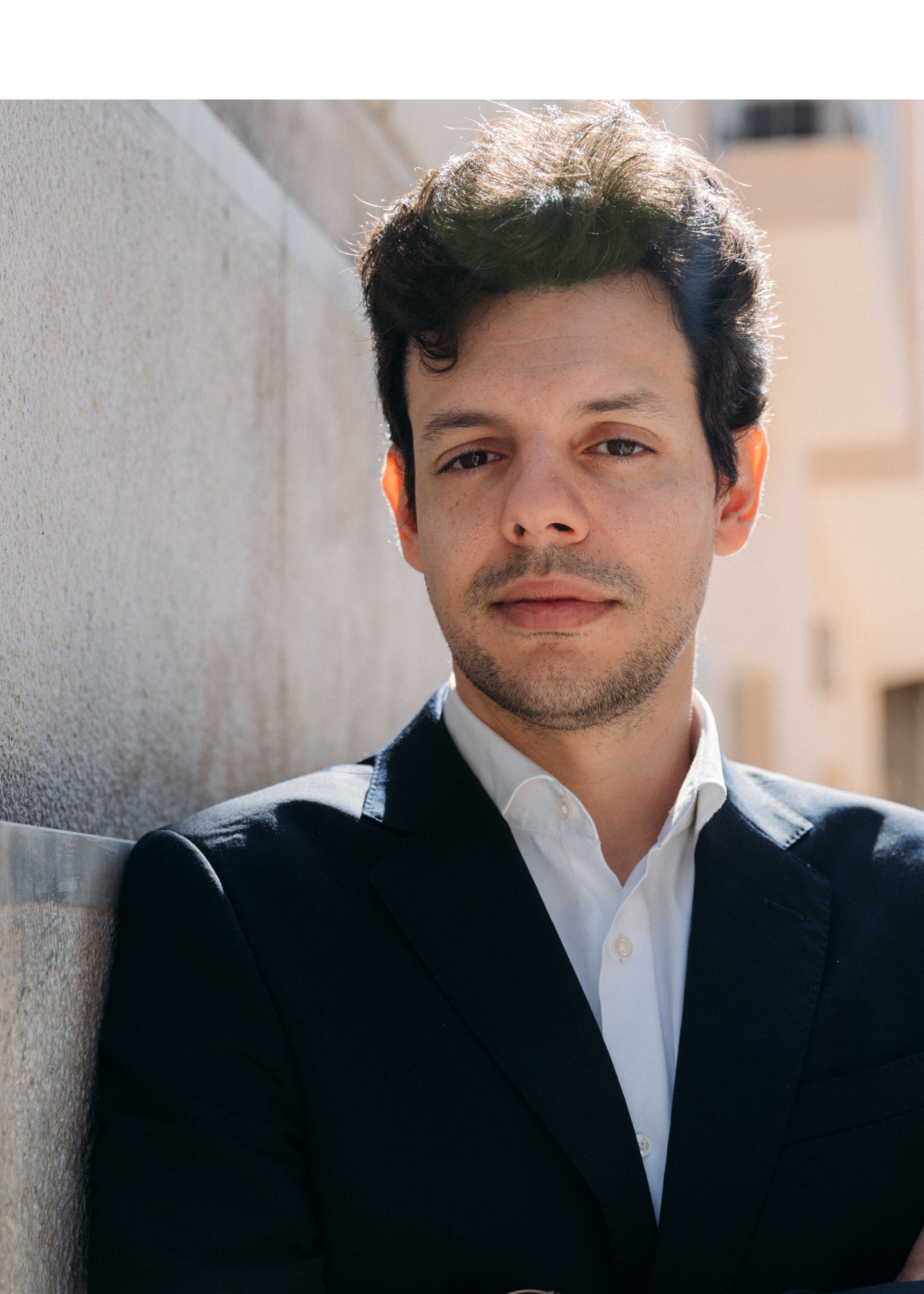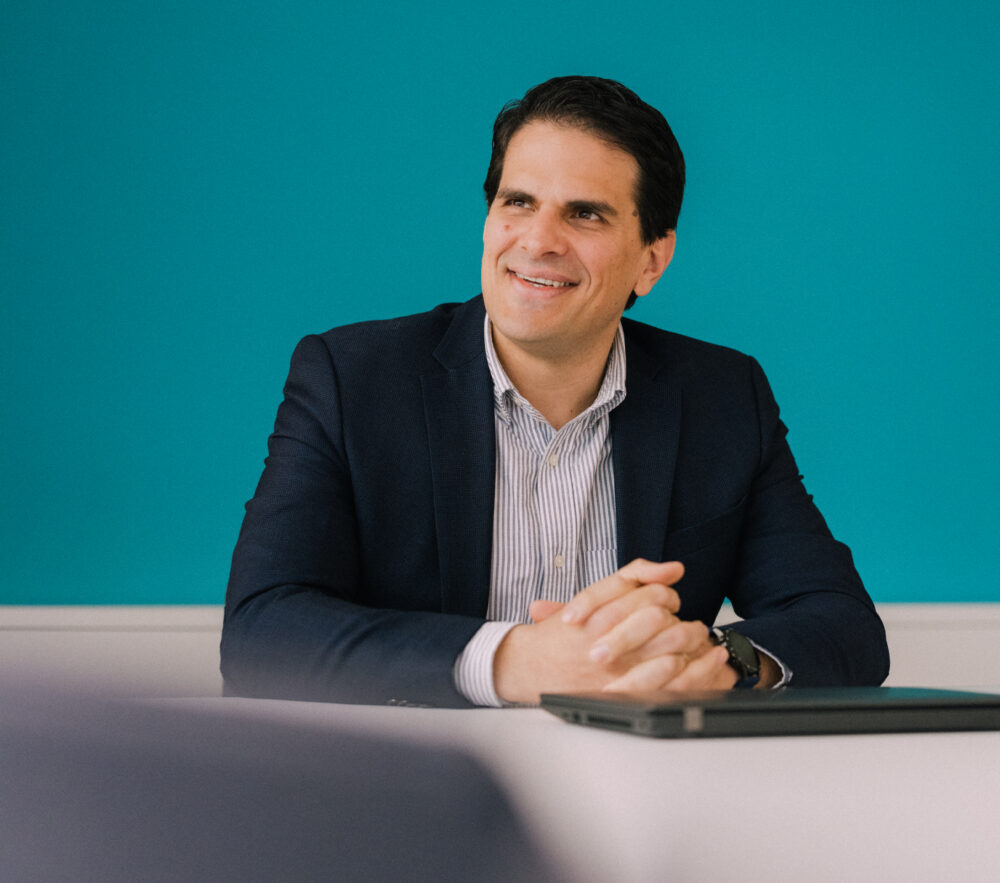»Working in AI forces you to ask hard questions«

From the moment he joined Netcompany, Nikos Kousiadis saw more than just an opportunity to lead AI initiatives—he saw a chance to make a meaningful impact. As AI Lead at the Enterprise Solutions division in Greece, Brussels, and Luxembourg, he is driven by both the transformative potential of AI and the responsibility that comes with it.
From theoretical equations
to practical AI
For Nikos, the journey to becoming AI Lead at the Enterprise Solutions division in Greece, Brussels and Luxembourg began with a bachelor’s degree in Mathematics at the University of Athens. Building on this foundation with an MSc in Business Analytics, he developed his expertise across prominent roles at respected organisations in data analytics and AI.
»Throughout my career, I’ve focused on manipulating and analysing data to solve problems, building creative visualisations, and developing machine learning models to predict business outcomes,« he explains.
Nikos’ comprehensive experience with relational databases and big data systems, combined with his progression from analyst to management positions, prepared him to lead AI initiatives—a role that demands both technical expertise and business acumen.

Driving AI innovation from day one
Since joining Netcompany in October 2024, Nikos has already led several AI initiatives. »What impressed me most,« he reflects, »was how quickly I was integrated into meaningful work. Stepping into a leadership role, I was welcomed by a collaborative environment where AI is treated as a strategic priority for both our internal operations and client solutions. From day one, I’ve had access to cutting-edge projects, a talented team, and the freedom to explore new ideas that create real value – a truly supportive environment that provides the perfect ground for professional growth.«
Beyond his work at Netcompany, Nikos has represented Netcompany as a mentor at Netcompany’s Hackathon in Thessaloniki and Athens University of Economics and Business’ AI Hackathon 2025 and as a workshop speaker at Open Conf 2024, showcasing the company’s expertise in Large Language Model (LLM) to the wider tech community.
»As a father, I think a lot about the world we’re building for the next generation. AI will shape that world in profound ways—so using it responsibly isn’t just a technical goal, it’s a personal responsibility.«

Innovation with integrity
While advocating for AI’s potential, Nikos emphasises its ethical implications. »As an AI Lead, I see myself as a bridge between technology and impact—advocating for responsible practices, setting ethical standards, and ensuring we build AI that people can trust,« he says.
»AI should not just be efficient—it should be fair, transparent, safe and accountable.«
For Nikos, this isn’t just a professional consideration—it’s personal. »As a father, I think a lot about the world we’re building for the next generation,« he shares. »AI will shape that world in profound ways—so using it responsibly isn’t just a technical goal, it’s a personal responsibility.«
However, ensuring responsible AI use isn’t always straightforward. »Working in AI forces you to ask hard questions—not just about the tech, but about values and impact,« Nikos reflects. »Those questions don’t always have easy answers, but they’re essential.«
»Building trustworthy AI systems requires ethical principles, governance frameworks, and continuous monitoring,« Nikos explains. »The regulatory landscape is already taking shape in Europe with initiatives like the EU AI Act, but in the coming years, we will likely see significant differences in how AI is used across different countries, as each region adopts its own regulatory approach. Finding the right balance will be critical to ensuring that AI delivers on its promise while safeguarding society.«
Three key insights from
Nikos for aspiring
AI professionals

»Build a strong base in mathematics – particularly linear algebra, probability, statistics, and optimisation. Complement this with programming skills, especially Python, and develop knowledge of databases, cloud computing, and software engineering principles. This technical toolkit is your entry point into the field.«
»While algorithms run on code, innovation runs on critical thinking. In my experience, problem-solving abilities are just as crucial as technical expertise. AI isn’t just about building models; it’s about understanding how to apply them effectively to solve complex real-world challenges that matter to people and businesses.«
»This field evolves at breakneck speed, so make staying current part of your routine – follow research papers, attend conferences, and engage actively with the AI community. Seek hands-on experience at every opportunity, and develop an understanding of ethical implications alongside your technical skills. The most impactful AI solutions emerge when technical knowledge is combined with domain expertise, ethical awareness, and creative thinking.«



